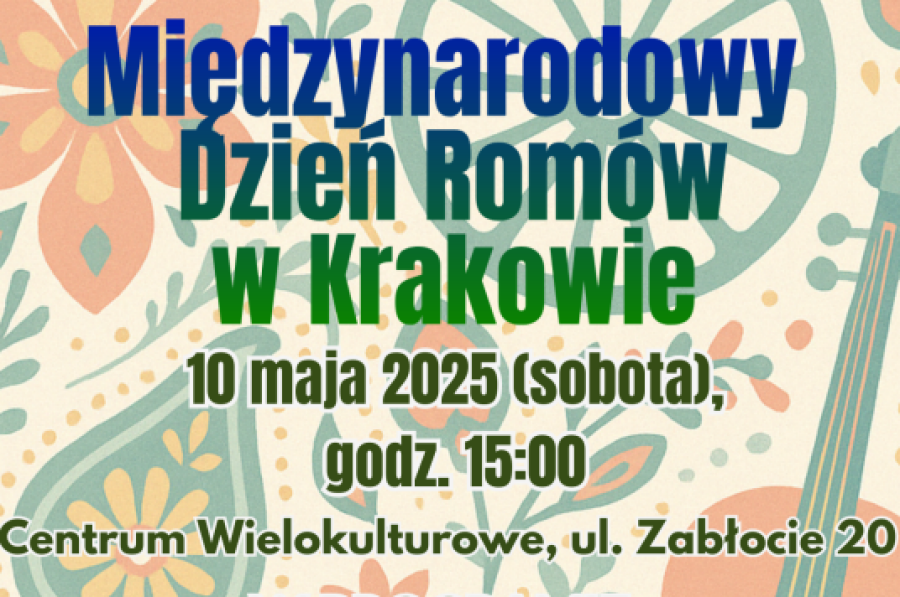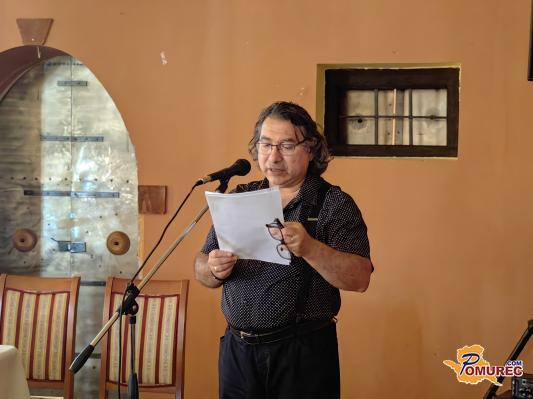A new book on the history of Roma in Bosnia and Herzegovina was recently published. It is a joint publication of the Sarajevo University institute for history and the Zagreb Ivo Pilar Institute. It is an important cross disciplinary work featuring many new research and facts about Roma history in the region.
Category Archives: News Eastern Europe
Slovenia: Victim Remnants
The parliamentary group of the Slovenian Democratic Party has submitted a request to convene an urgent session of the Committee for Petitions, Human Rights and Equal Opportunities. At the session, they want to discuss the item entitled Piety and dignified burial of the murdered victims from the clandestine cemetery Jama pod Macesnova gorica.
The reason for the request is the decision of the Ministry of Défense to temporarily transfer more than 3,000 mortal remains of victims of interwar and post-war violence, some of them Roma, which have so far been stored in inappropriate conditions in the garage of Komunala Kočevje, to the ossuary near Škofja Loka. “Despite announcements about seeking consensus with relatives and the general public, the transfer was carried out unilaterally, without prior agreement on the final burial location,” the SDS parliamentary group warns.
- Barbarsko ravnanje s pomorjenimi bo obravnavano pred komisijo DZ. In: Nova 24 TV. 13.05.2025.https://novice.najdi.si/novica/9781300002f9dd2fdc2db0cf781c7469/nova24tv/barbarsko-ravnanje-s-pomorjenimi-bo-obravnavano-pred-komisijo-dz
Slovakia, Kindergarten, and Roma
The intention of the Slovak Minister of Education Tomáš Drucker to introduce compulsory pre-primary education from the age of three is not only causing resentment among a group of parents who want to have their child at home at a young age, but also a consideration of whether it will be truly effective and quickly applicable in practice. Currently, it seems most likely that the ministry will need finances for this.
The Ministry of Education claims that it wants to help children from socially disadvantaged backgrounds with the law.
- Druckerov nápadPovinná škôlka od troch rokov vyvoláva aj u Rómov veľa otázok. Vyžiada si hlavne peniaze. In: Dennik Postoj. 15.05.2024. https://www.postoj.sk/175507/povinna-skolka-od-troch-rokov-vyvolava-dalsie-otazky-vyziada-si-hlavne-peniaze
Serbia: Pogrom
A Roma family was the victim of a brutal attack by a mob in a village in Serbia.
- ROMANI FAMILY WITH INFANT ATTACKED BY A MOB IN COORDINATED ARSON IN TAVNIK, SERBIA. In: European Roma Right Centre. 09.05.2025. https://www.errc.org/news/romani-family-with-infant-attacked-by-a-mob-in-coordinated-arson-in-tavnik-serbia
Ukraine: Condemnation
Three perpetrators of the brutal attack on a Roma camp in Lviv in 2018 were sentenced to prison after seven years. The Sychov District Court sent two attackers to ten years in prison, the main organizer received a sentence of ten years and 6 months. The verdict is not yet final. The European Roma Rights Center (ERRC) reports.
- Za smrtelný útok neonacistů na romský tábor v ukrajinském Lvově padly po sedmi letech tresty: 10 a 10,5 roku vězení. In: Romea. 13.05.2025. https://romea.cz/cz/zahranici/za-smrtelny-utok-neonacistu-na-romsky-tabor-v-ukrajinskem-lvove-padly-po-sedmi-letech-tresty-10-a-105-roku-vezeni
- A QUESTION OF JUSTICE: THREE SENTENCED TO PRISON FOR FATAL ATTACK ON ROMANI CAMP IN LVIV, UKRAINE. In: European Roma Right Centre. 09.05.2025. https://www.errc.org/news/a-question-of-justice-three-sentenced-to-prison-for-fatal-attack-on-romani-camp-in-lviv-ukraine
Lety Commemoration
Two articles on the commemoration in Lety last week end. Both stress the fact that hatred against Roma is on the rise again.
- „Nenávist roste. Odpovědí musí být vzdělávání,“ uvedla romská vládní zmocněnkyně Lucie Fuková v Letech u Písku. In: Romea. 11.05.2025. https://romea.cz/cz/komentare/nenavist-roste-odpovedi-musi-byt-vzdelavani-uvedla-romska-vladni-zmocnenkyne-lucie-fukova-v-letech-u-pisku#google_vignette
- Lhostejnost otevírá dveře násilí, zdůraznil při pietě v Letech šéf Senátu. In: O3. 11.05.2025. https://ct24.ceskatelevize.cz/clanek/domaci/lhostejnost-otevira-dvere-nasili-zduraznil-pri-piete-v-letech-sef-senatu-360872
Lety Museum
The Roma and Sinti Holocaust Memorial in Bohemia was opened in Lety by the Museum of Roma Culture last April. According to the museum’s director, Jana Horváthová, the memorial’s indoor exhibition was visited by about 10,000 people in its first year of operation last year. And she emphasized that among them were numerous school trips.
“But the Museum of Romani Culture cannot function alone in this matter (education). A national education policy is essential. It is absolutely essential that the topic of Romani history and culture be included in the framework educational programs, that it be taught in schools at least from the second level (elementary school). It is not yet,” said Horváthová.
- Je to lhostejnost, která otevírá dveře genocidě a holokaustu, zdůraznil v Letech Miloš Vystrčil. In: iRozhlas. 11.05.2025. https://www.irozhlas.cz/zpravy-domov/je-lhostejnost-ktera-otevira-dvere-genocide-a-holokaustu-zduraznil-v-letech_2505111449_cen
Slovakia: Municipal Work
The Slovak ministry of Labour wants to push for so-called “activation work” for long term unemployed. This means doing some menial jobs for municipalities, and, according to statistics, only 1 to 2% of people in this scheme find a job afterwards.
- Aktivačné práce čakajú zmeny. Rezort ich chce kategorizovať, opozícia riešenie považuje za neefektívne. In: TA3. 11.05.2025. https://www.ta3.com/clanok/993725/aktivacne-prace-cakaju-zmeny-rezort-ich-chce-kategorizovat-opozicia-riesenie-povazuje-za-neefektivne
Lety: Commemoration
The traditional commemorative ceremony honoring the memory of the Holocaust and its Romani and Sinti victims took place at the site of what was previously called the “Gypsy Camp” in Lety u Písku on Sunday, may 11th.
- LIVE BROADCAST 11 MAY at 12:00 CET: Commemorative ceremony honoring the memory of the Holocaust and its Romani victims at the site of the former concentration camp in Lety u Písku, Czech Republic. In: Romea. 09.05.2025. https://romea.cz/en/czech-republic/live-broadcast-11-may-at-1200-cet-commemorative-ceremony-honoring-the-memory-of-the-holocaust-and-its-romani-victims-at-the-site-of-the-former-concentration-camp-in-lety-u-pisku-czech-republic
Kosovo and Roma
A report by the Voice of Roma, Ashkali and Egyptians, titled “Assessing Behavioral Change in Journalistic Reporting on the Roma, Ashkali and Egyptian Communities,” highlights significant progress in the way Kosovo media report on the Roma, Ashkali and Egyptian communities.
- Le rapport « La Voix des Roms, des Ashkalis et des Égyptiens » fait état de progrès significatifs dans la manière dont les trois communautés sont présentées. In: Koha. 07.05.2025. https://www.koha.net/fr/arberi/raporti-i-voice-of-roma-ashkali-and-egyptians-flet-per-progres-domethenes-se-si-raportohet-per-3-komunitetet
Transcarpathian Ukrainian Roma
For once, quite a good article on Roma in Ukraine and specifically in Transcarpathia. While they obviously do not know the various Roma communities, (Servi, Xaladytka, Polska, Kirimlides, Ursaria, Kalderaša, Lovara, etc.) they know that they are different with different histories and issues.
- Les Roms de Transcarpatie et la guerre en Ukraine. In: Info Libertaire. 05.05.2025. https://www.infolibertaire.net/les-roms-de-transcarpatie-et-la-guerre-en-ukraine/#/
Lety: Commemoration
On Sunday, May 11, 2025, at 12 noon, a traditional commemoration of the Roma and Sinti Holocaust victims will take place in Lety u Písku, which will take place at the site of the former so-called gypsy camp. The annual gathering commemorates the tragic fate of hundreds of Roma men, women and children who were deported from this place to extermination camps. The commemoration will also be possible to watch live this year thanks to the first Roma internet television, ROMEA TV, which will offer a live broadcast from the site.
- PŘÍMÝ PŘENOS: Pietní akt k uctění památky romských obětí holokaustu na místě bývalého koncentračního tábora v Letech u Písku. In: Romea. 09.05.2025. https://romea.cz/cz/domaci/primy-prenos-pietni-akt-k-ucteni-pamatky-romskych-obeti-holokaustu-na-miste-byvaleho-koncentracniho-tabora-v-letech-u-pisku#google_vignette
Children’s Music
Čeky Čháve Čhavorenge is the title of the third album by the Roma band Lomnické čháve and Marián Čekovský. It is an album on which children and their parents will find children’s rhymes set to music in Slovak and Romanes. Manager Tomáš Slebodník says how this whole project came about.
- Čekovský prišiel s rómsko-slovenským CD pre deti: Hudba je reč, ktorej rozumieme všetci. In: Živor. 10.05.2024. https://zivot.pluska.sk/rozhovory/cekovsky-prisiel-s-romsko-slovenskym-cd-pre-deti-hudba-je-rec-ktorej-rozumieme-vsetci
Šutka: Femicide
The Roma Association for Women and Youth “LULUDI” expresses serious concern about the premature reaction and lack of measures to protect a Romni who was a victim of domestic violence by her partner despite the fact that she reported it several times at the local police.
- Stowarzyszenie Romów „Luludi” reaguje na zabójstwo kobiet w Shuto Orizari: Niewłaściwe działanie instytucji odbiera życie. In: Sloboden Pečat. 05.05.2025. https://www.slobodenpecat.mk/pl/romskata-asocijacija-luludi-reagira-na-femicidot-vo-shuto-orizari-nenavremenoto-postapuvanje-na-instituciite-odzema-zhivoti/
Krakow: Celebration
The Krakow somewhat belated celebrations of International Roma Day are taking place today place at the Multicultural Center at ul. Zabłocie 20. The program includes a debate, workshops, tasting of traditional dishes and a concert by Marek Balog – an outstanding Roma artist.
- Świętujmy wspólnie różnorodność i piękno kultury romskiej. InK: Krakow. 09.05.2025. https://krakow.pl/aktualnosci/294280,33,komunikat,swietujmy_wspolnie_roznorodnosc_i_piekno_kultury_romskiej.html
Lublin on Roma Integration
On May 5, 2025, the Municipality of Lublin concluded agreements with the Voivode of Lublin to implement tasks under the “Social and Civic Integration Program for Roma in Poland for the years 2021-2030.”
The projects plans to increase the social integration of Roma and non-Roma children through participation in a joint holiday trip to summer camps in 2025 and to purchase school materials, textbooks, and sports articles for Roma children.
Whether this is enough for integration remains to be seen…
- Program integracji społecznej i obywatelskiej Romów w Polsce na lata 2021-2030. In Lublin. 08.05.2025. https://edu.lublin.eu/wiadomosci/program-integracji-spolecznej-i-obywatelskiej-romow-w-polsce-na-lata-2021-2030-27496?parent_way=10
Politics in Czechia
The umbrella platform of Roma and pro-Roma organizations RomanoNet and the civic members of the Government Council for Roma Minority Affairs sharply condemned the behaviour of Marek Cavali, the candidate of the STAČILO! movement in the Ústí nad Labem Region, who, according to the media and witnesses, has been threatening, insulting and dishonouring his opinion opponents for a long time. His behavior is being responded to by a joint statement from almost two dozen Roma organizations and individuals, according to whom Cavali’s actions create an atmosphere of fear and damage trust in the public representation of the Roma.
Bad, that this has no consequences…
- Kandidát STAČILO! Marek Cavali čelí ostré kritice: Více než dvacítka organizací a odborníků odmítá jeho výhrůžky a rasistické vulgarity. In: Romea. 07.05.2025. https://romea.cz/cz/domaci/kandidat-stacilo-marek-cavali-celi-ostre-kritice-vice-nez-dvacitka-organizaci-a-odborniku-odmita-jeho-vyhruzky-a-rasisticke-vulgarity
“Gypsy Free”
Or how a village in Hungary managed to prevent Roma from moving there, and how the mayor effectively controlled who could buy property there.
Shame.
- APARTHEID BY STEALTH: SHOCKING SCANDAL OF ‘GYPSY FREE’ VILLAGE IN HUNGARY REVEALED.. In: European Roma Right Centre. 06.05.2025. https://www.errc.org/news/apartheid-by-stealth-shocking-scandal-of-gypsy-free-village-in-hungary-revealed
Slovenian Roma Community Act
Another article on the new proposed Slovenian Roma Community Act, that is criticised by the Roma community.
- Romski svet kritičen do predloga novele zakona. In: Pomurec. 05.05.2025. https://www.pomurec.com/vsebina/87857/

















